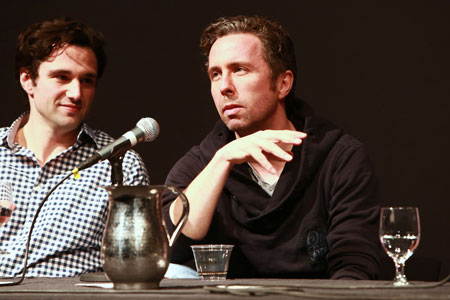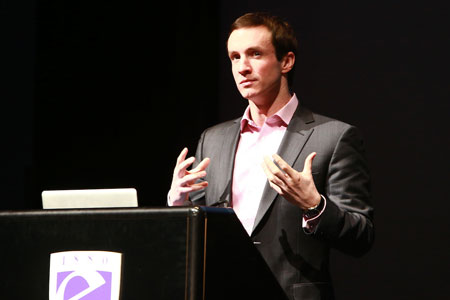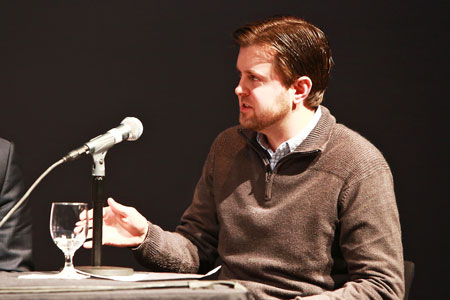Communication in the big data age
When it comes to the importance of analyzing what is now known as “big data,” the statistics speak for themselves.
“Thirty billion pieces of content were added to Facebook this past month by [more than] 600 million users,” said Phillip Glenn, interim dean of the School of Communication, during the March 14 panel discussion “Communication in the Age of Big Data” at the Semel Theater.

“More than 2 billion videos were watched on YouTube yesterday,” Glenn said. “The average teenager sends 4,700 text messages a month.”
Despite those astounding numbers, the age of big data has just begun, said panelist Fred Lalonde, CEO and co-founder of Hopper, a young but successful company that uses algorithms to help vacationers plan trips on mobile devices.
“We might think that big data is actually a reality, but it’s not yet,” Lalonde said. “We’re just in the warm-up.”
Lalonde told students it is important for them to become familiar with big data now—and said there are often weekend workshops at tech start-ups in Boston and Cambridge that offer classes for people just beginning to understand how to analyze data.
“If you come from a non-technical background and you take the time to acquire skills that are technology-driven, you will become a Jedi Ninja assassin,” Lalonde told the crowd, receiving laughs. “You’re going to look at these problems differently.”
He said someone with good social media and programming skills today will likely land a job making more than $100,000.

